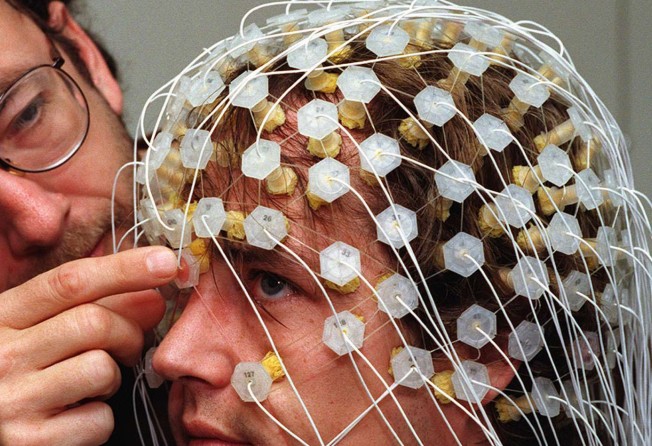
Facebook is working on a ‘brain-computer interface’ to read and transmit your thoughts

Mark Zuckerberg's dream of gadgets that let humans read each other’s thoughts and communicate with brain waves may be moving closer to reality.
A secretive new research division that Facebook created last year is developing “brain-computer interface” technology that sounds a lot like the telepathy of science fiction movies.
Several recent job postings listed by Facebook’s Building 8 group describe a project involving ”neuroimaging” and ”electrophysiological data” to create a ”communications platform of the future”.
An open position for a brain-computer interface engineer seeks a PhD in neuroscience who can help with a related project from “inception to product” over a two-year period. Another listing seeks an engineer who can “develop audio signal processing algorithms” for a “communication and computing platform of the future”.

“One day, I believe we’ll be able to send full rich thoughts to each other directly using technology,” Zuckerberg said during a June 2015 Q&A. “You’ll just be able to think of something and your friends will immediately be able to experience it too if you’d like.”
Other listings seek engineers who can develop “novel non-invasive neuroimaging technologies” and create “realistic and immersive haptics experiences”.
Neuroimaging is an advanced field of science that uses various techniques to scan and understand what's happening in the human brain, while haptic technology simulates a sense of touch with computers.
Facebook already appears to be bringing in talent to map the brain. Mark Chevillet, a programme manager of applied neuroscience at Johns Hopkins University joined Facebook in September as a “technical project lead”, according to his LinkedIn profile.
It's unclear what kind of technology might ultimately allow Facebook to realise this vision. In the past, companies have tried using headbands packed with special sensors to measure certain brain signals, and it's possible that Facebook could take a similar approach.
Such a product, although likely a long ways off, would represent a major leap forward in computing and would put Facebook, the world's largest social network, at the forefront of the intersection of technology and science.
Alphabet, the parent company of Google, has pioneered the ambitious “moonshot” projects to reinvent everything from cars to healthcare. But Facebook is ramping up its efforts, poaching Google's Regina Dugan in April 2016 to spearhead the new Building 8 team.
Little is publicly known about Building 8, other than its broad mission to develop consumer hardware products that advance Facebook's mission of “connecting the world”.
Before Google, Dugan was the director for the US government's Defense Advanced Research Projects Agency, or DARPA.
The two-year term limit on many Building 8 job listings suggests that the division intends to also work similarly to Alphabet’s X division, which is known for developing new products within fixed time frames before either shutting them down or spinning them out as standalone businesses.
Building 8 has yet to officially announce any products, but these job listings indicate that it's starting to ramp up internal projects.